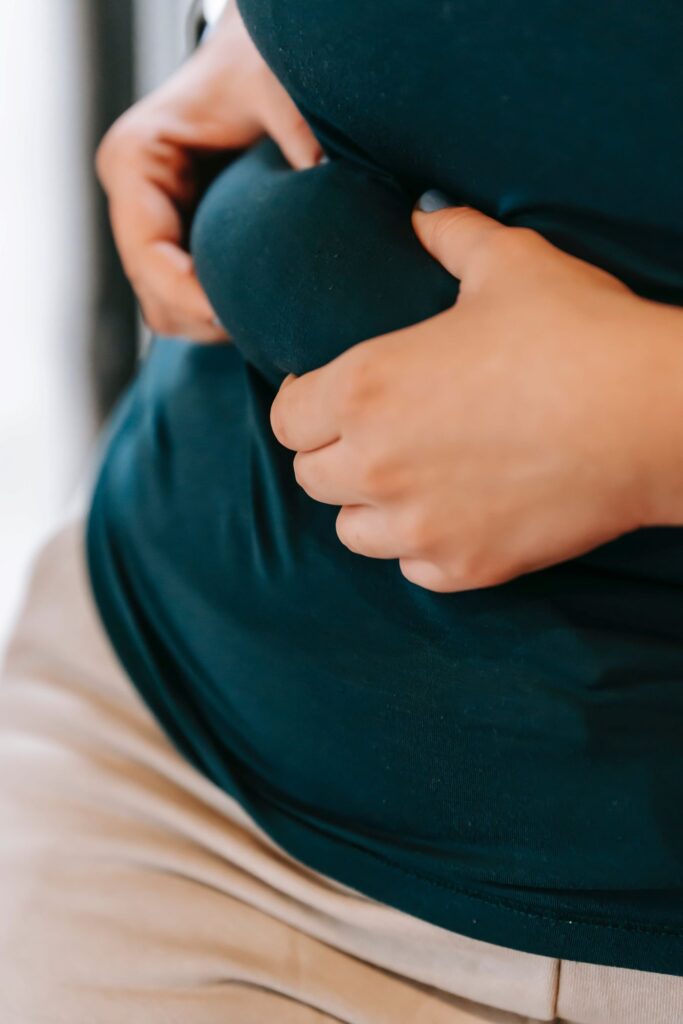Health, Health Conditions
When Does Bloating Become A Problem
Feeling bloated after a large meal is normal, but what happens when bloating becomes a recurring and bothersome problem? In this article, we will look at the origins, symptoms, and potential solutions to decide whether bloating becomes a serious issue.
Understanding Bloating
Bloating can be caused by a number of causes, including nutrition, medical issues, and lifestyle habits. It causes a sensation of fullness, tightness, or distension in the belly, which is frequently accompanied by gas, pain, or discomfort. While occasional bloating is usually harmless, chronic or severe bloating can suggest an underlying problem that needs to be addressed.
Common Causes of Bloating
There are several frequent reasons for bloating that can cause problem. One of the key causes is overeating. Large portions of food can overload the digestive system, causing bloating and discomfort. Similarly, eating too quickly might result in excessive air swallowing, which contributes to bloating.
Certain foods are known to cause gas in the digestive system, resulting in bloating. These include beans, lentils, broccoli, cabbage, onions, and fizzy beverages. Food intolerances, such as lactose or gluten sensitivity, can also cause bloating in susceptible people.
Chronic bloating can be caused by digestive problems such as IBS or IBD. These diseases disrupt the regular functioning of the digestive system, resulting in symptoms such as bloating, abdominal pain, and abnormalities in bowel motions.

When Should You Be Worried About Bloating
While some bloating is natural, persistent or severe bloating may signal an underlying problem. If bloating occurs frequently, lasts for an extended amount of time, or is accompanied by other worrying symptoms, it is critical to seek medical attention.
Persistent or severe bloating might indicate illnesses such as small intestine bacterial overgrowth (SIBO), gastroesophageal reflux disease (GERD), or, in certain situations, ovarian cancer. It’s critical to monitor any changes in bloating patterns or the emergence of new symptoms.

Symptoms of Problematic Bloating
Identifying problematic bloating entails recognizing accompanying symptoms. In addition to a sense of fullness and abdominal distension, other symptoms may include excessive gas, belching, flatulence, abdominal discomfort, and changes in bowel habits such as diarrhea or constipation.
If bloating is accompanied by severe pain, blood in the stool, unexplained weight loss, or chronic exhaustion, get medical assistance right once. These symptoms could signal a more serious underlying disease that requires immediate evaluation and treatment.

Medical Conditions Associated with Bloating
Bloating can be a sign of a variety of medical issues. Irritable bowel syndrome (IBS) is a common disorder that affects the large intestine and causes symptoms such as bloating, stomach pain, and irregular bowel movements. Other digestive illnesses, including celiac disease, Crohn’s disease, and ulcerative colitis, also cause bloating.
Bloating and associated digestive symptoms can be caused by gastrointestinal illnesses such as bacterial or parasitic. Bloating can be an indication of gastrointestinal cancers such as stomach, pancreas, or ovarian cancer. It is crucial to note that bloating is rarely a conclusive sign of cancer, but it should be considered alongside other symptoms to ensure a good diagnosis.
Steps to Manage and Reduce Bloating
If you have regular or unpleasant bloating, you can take action to manage and lessen it. First and foremost, be aware of your dietary habits. Avoid overeating and eat slowly while chewing your food fully. This can assist to reduce excessive air swallowing and enhance digestion.
Identify and remove or decrease foods that cause bloating. Keep a food diary to monitor your symptoms and uncover patterns or triggers. Fiber-rich foods, fatty or oily foods, carbonated beverages, and artificial sweeteners are all common culprits. Experiment with your diet and see what works best for you.
Drinking plenty of water and staying hydrated might also help to reduce bloating. Water helps digestion and keeps things moving smoothly through your digestive tract. Avoiding or limiting alcohol and caffeine can also help to minimize bloating because they irritate the digestive tract.

Foods and Drinks That Can Help Reduce Bloating
While some meals can cause bloating, others can help reduce it. Certain foods in your diet may help reduce bloating and improve digestion. Ginger, peppermint, fennel, pineapple, papaya, and probiotic-rich foods such as yogurt and sauerkraut are all bloating-reducing.
Herbal teas, such as chamomile or peppermint tea, can soothe the digestive tract and help with bloating. Additionally, eating potassium-rich foods like bananas and avocados can help manage fluid balance in the body and prevent bloating.
Lifestyle Changes to Prevent Bloating
In addition to nutritional adjustments, several lifestyle changes might aid in bloating reduction. Regular exercise, such as walking or yoga, can help accelerate digestion and prevent constipation, which can lead to bloating. Meditation and deep breathing exercises are examples of stress management practices that can improve digestive health.
Avoiding smoking and limiting exposure to secondhand smoke can enhance digestive function and lower the risk of bloating. Smoking can irritate the digestive system and disrupt regular digestion, causing bloating and other gastrointestinal problems.

When to Get Medical Help for Bloating
While most occurrences of bloating are innocuous and can be controlled with lifestyle adjustments, there are times when medical attention is required. If you have severe or chronic bloating and other worrying symptoms, you should see a doctor.
Seek medical assistance if you are experiencing unexplained weight loss, severe or worsening abdominal pain, blood in your stool, or chronic exhaustion. These symptoms could signal an underlying medical condition that necessitates further investigation and treatment.
Conclusion
Bloating is a common and typically harmless occurrence, but it can become an issue if it interferes with everyday life or is accompanied by troubling symptoms. Understanding the probable reasons and triggers of bloating, as well as implementing practical techniques and solutions, can help you manage and lessen it to enhance your overall comfort and well-being. If you experience persistent or severe bloating, you should seek medical attention to rule out any underlying issues and safeguard your health and well-being.


